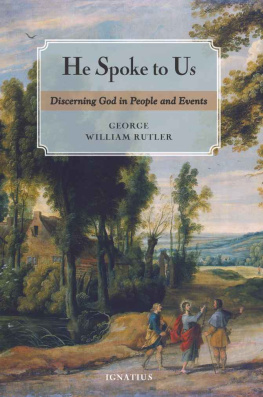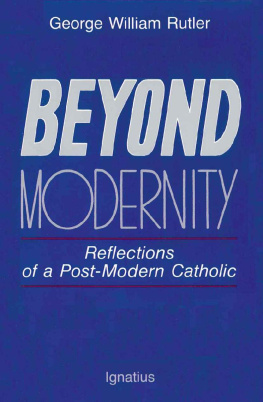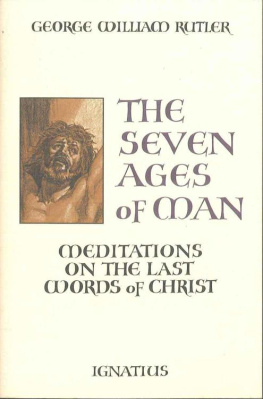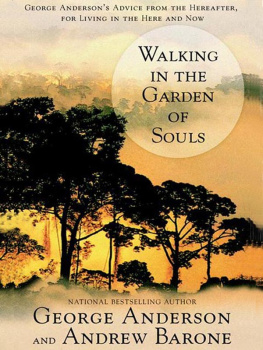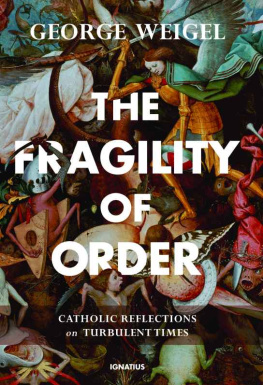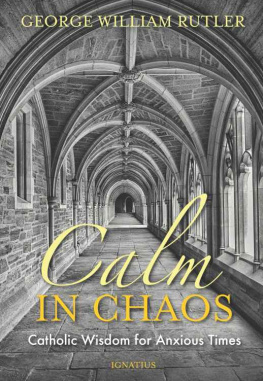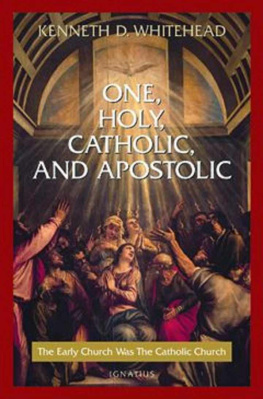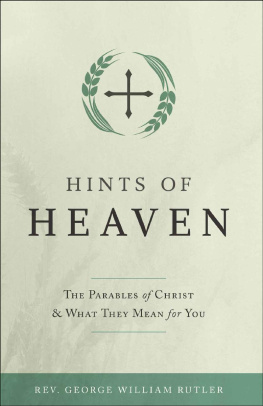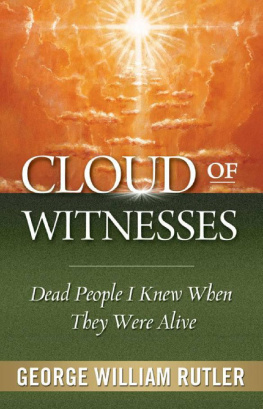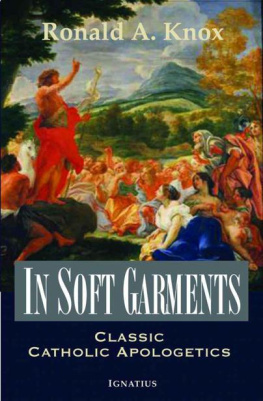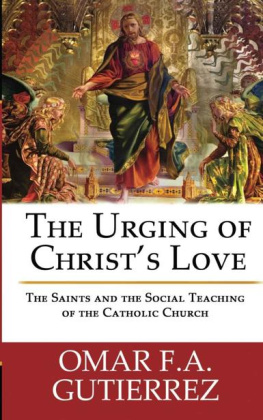HE SPOKE TO US
George William Rutler
HE SPOKE TO US
Discerning God in People and Events
FOREWORD BY EDWARD SHORT
IGNATIUS PRESS SAN FRANCISCO
Unless otherwise noted, Scripture quotations (except those within citations) have been taken from the Revised Standard Version of the Holy Bible, Second Catholic Edition, 2006. The Revised Standard Version of the Holy Bible: the Old Testament, 1952, 2006; the Apocrypha, 1957, 2006; the New Testament, 1946, 2006; the Catholic Edition of the Old Testament, incorporating the Apocrypha, 1966, 2006; the Catholic Edition of the New Testament, 1965, 2006 by the Division of Christian Education of the National Council of the Churches of Christ in the United States of America. All rights reserved.
Cover design by Davin Carlson
2016 by Ignatius Press, San Francisco
All rights reserved
ISBN 978-1-58617-983-0 (PB)
ISBN 978-1-68149-691-7 (EB)
Library of Congress Control Number 2014949943
Printed in the United States of America
CONTENTS
Foreword
Father George Rutler In Excelsio
Recently, in search of light summer reading, I decided to dip into Tobias Smollets The Expedition of Humphry Clinker (1771)a book I had not opened since my antediluvian twentiesand I came upon a passage describing divines on vacation that reconfirmed all of my old admiration for the unsparing Georgian satirist.
The musick and entertainments of Bath are over for this season; and all our gay birds of passage have taken their flight to Bristolwell, Tunbridge, Brighthelmstone, Scarborough, Harrowgate, &c. Not a soul is seen in this place, but a few broken-winded parsons, waddling like so many crows along the North Parade. There is always a great shew of the clergy at Bath: none of your thin, puny, yellow, hectic figures, exhausted with abstinence and hardy study, labouring under the morbi eruditorum , but great overgrown dignitaries and rectors, with rubicund noses and gouty ancles, or broad bloated faces, dragging along great swag bellies; the emblems of sloth and indigestion.
By contrast, I thought of the subject of this foreword, the Reverend George Rutler, a spry, athletic, ebullient man, who, far from laboring under any morbi eruditorum , is positively suffused with the joy of learning, especially when it helps him to illuminate the love of God, what Blessed John Henry Newman called the one thing needful.
Many of my readers will know Father Rutler as the New York pastor who brought pastoral vitality and administrative aplomb, first, to the Church of Our Saviour on Park Avenue and, then, to the Church of Saint Michael on West Thirty-Fourth Street. Others will know him as the witty proponent of faith and reason on EWTN or the author of many entertaining and instructive books, including his most recent, the highly acclaimed Powers and Principalities , a brilliantly original study of the Second World War, which exhibits an understanding of the moral uses of history that far too many professional historians either travesty or neglect. The Father Rutler of whom I should like to speak here is the writer of essays, a form of writing perfectly suited to his supple, far-ranging, discriminating wit.
In sharing with his readers his uncommonly insightful views of history, literature, society, and the faith, to name just a few of the subjects essayed in this collection, Father Rutler shows why he continues to exert such a formative influence not only over the faithful and the unfaithful but on those most difficult customers of all, the formerly faithful. It is to the last of these that the piece that opens the collection is addressed, a rather sobering piece, entitled, The Transfiguration of the Church.
Perfectionists are easily scandalized by what is not good. Saints are only scandalized by what is not glorious. We may say in clich, Nobodys perfect, but the fact is, saints are perfect, and they are precisely so because they do not try to be good, better, and best. On the contrary, the more they are transfigured by the Light, the more they seem to themselves bad, worse, and worst.
How frequently we hear lapsed Catholics giving out that they have lost faith in Gods Church because they have lost faith in his less than perfect servants. For the benefit of these misguided precisians, Father Rutler offers useful home truths.
In his last Angelus address, Benedict XVI said that he is now going up the mountain as did Peter, James, and John, and there he will pray. He knows that at the foot of the mountain are all kinds of noise and foaming, and these are the growls of the Prince of Darkness paying the Church a tribute he pays no other reality: his hatred. While he mocks men and scorns their pretensions, he reserves his bitterness for the Church, which is the only thing he fears in this world.
Besides hitting its target with pinpoint accuracy, this passage is characteristic of the essays as a whole in having the grace of good conversation. And this calls to mind another of Father Rutlers virtues: he is an enviably deft polemicist, who never allows the follies or the provocations of his subjects to disconcert his serene gunnery. For the sort of rhetorical poise that I have in mind, readers should see the essay here entitled The Moral Exploitation of Penguins, which confounds those who defend what they imagine the moral acceptability of unnatural unions with marvelous suavity. No one in our time has come to the defense of truth with so much good sense or good humor as Father Rutler.
This readiness to champion truth necessarily involves the author in animadversions on our public men, many of whom treat truth as an infinitely malleable thing. In The Shore of Tripoli, Father Rutler points out how President Obama wildly misrepresents Thomas Jeffersons view of Muslims. He also points out how ignorance of early American history is not the presidents only blind spot.
Another essay here, Governor Pliny and Governor Cuomo, in response to Andrew Cuomo telling pro-life and pro-marriage New Yorkers that they are unwelcome in the Empire State because they do not share the governors fondness for abortion and homosexual marriage, is an equally good case in point. When the politicians of New York distort the truth, which they do with an almost compulsive frequency, the Catholic clergy of New York are not always quick to refute them. That Father Rutler takes the time to call these erring oracles to account shows what true Christian charity animates the man. Certainly, he has done the governor an immense service by pointing out to him how his readiness to insult and indeed persecute his opponents vitiates his government, not to mention what ought to be his obedience to the faith of his fathers. Then, again, that Father Rutler calls the governor to account with witty reference to Pliny and Trajan puts the misconduct of the present State of New York in a wider, historical context. And since history for Father Rutler is never a matter of barren antiquarianism but a living guide to sound moral judgment and sound moral action, his invocations of history are always of great practical import. Plutarch would approve.
Indeed, by giving Governor Cuomo and his administration the benefit of his own sound moral judgment, Father Rutler exemplifies something Cardinal Newman once wrote about the Church in her relation to the State, with which I am sure he is familiar. The great principles of the State, the great convert wrote in his lecture on Certain Difficulties Felt by Anglicans (1850), are those of the Church, and, if the State would but keep within its own province, it would find the Church its truest ally and best benefactor. Why? Because the Church upholds obedience to the magistrate; she recognises his office as from God; she is the preacher of peace, the sanction of law, the first element of order, and the safeguard of morality, and that without possible vacillation or failure; she may be fully trusted; she is a sure friend, for she is indefectible and undying. The problem, however, as Father Rutler understands so clearly, is that the usurpatory State will not confine itself to its proper limits. As Cardinal Newman observed, it is not enough for the State that things should be done, unless it has the doing of them itself; it abhors a double jurisdiction, and what it calls a divided allegiance; aut Caesar aut nullus , is its motto, nor does it willingly accept of any compromise. All power is founded, as it is often said, on public opinion; for the State to allow the existence of a collateral and rival authority, is to weaken its own.
Next page
